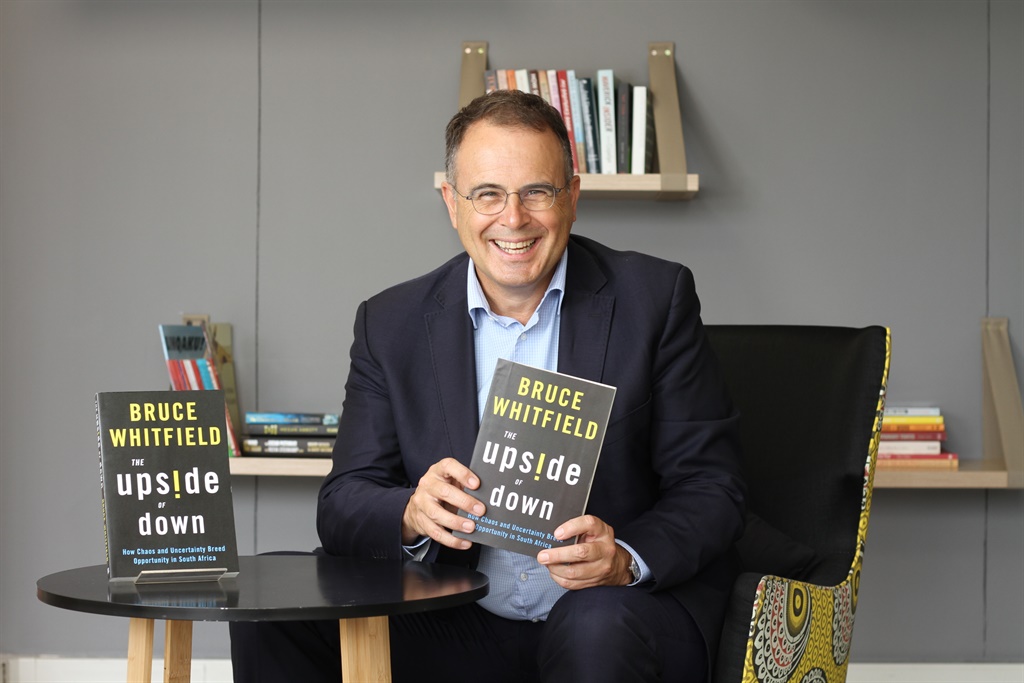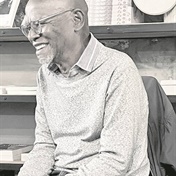
The Upside of Down
Published by Pan Macmillan South Africa
229 pages
R299
You might argue that South Africa needs rebuilding and that the short-term injection of money derived from a wealth and supertax would give the country a Red Bull-type boost to get the rusty cogs of growth moving again.
But the South African state has proved worse than useless at capital allocation, and has persisted in funding failing public enterprises even when private sector funders started to balk at throwing good money after bad.
The most recent example of this is the decision by the Development Bank of Southern Africa (DBSA) to provide bankrupt South African Airways (SAA) with an injection of R3.5 billion. It takes a very broad interpretation of the DBSA mandate to treat SAA as a developmental asset.
For the influential trade union grouping Cosatu, the problem is simple: use public-sector workers’ pensions as a veritable piggy bank to prop up state failures.
All this will do in the world of defined-benefit pension funds is postpone the liability for the state to some future date when pensioners, whose money would have been frittered away by then on funding frivolous failures, will demand their payouts.
The unions are in fact barking at the wrong gate. The conversation they appear incapable of having is the one that requires them to allow the substantial restructuring and commercially minded management of state businesses.
Over time this would facilitate a recovery that would create more jobs than exist presently, but they are unwilling to absorb the inevitable short-term pain that proper decision-making would involve.
The problem with distributing the money from taxes rather than keeping it in the hands of growth-hungry entrepreneurs is that it won’t be spent where it can deliver the best return.
Allow an entrepreneur to risk his or her capital on a venture that will create jobs, become profitable and pay a reasonable rate of tax, and the rewards for the country over the longer term are not just higher, but also more sustainable.
What is more, though there is no question that taxes properly applied can make a huge differencein the lives of beneficiaries, the South African government has lost the trust of the tax-paying public to do so effectively, efficiently and without wholesale looting.
The second Jacob Zuma administration destroyed so much public trust. Most South African start-ups are created by 40-something year olds, says Pavlo Phitidis at Aurik Business Accelerator.
These are people who either through design or default find themselves outside the corporate world and use the skills gleaned in large companies to venture out on their own. Often it’s because they have seen an opportunity in the sector they serve and know just how best to exploit it.
By the time they get to create their startup, they would have developed a reputation and connections that give them a better chance of convincing a backer to support their idea.
In South Africa, few 20 year olds have those networks or the experience to go out on their own, even if they wanted to.
And with youth unemployment raging at over 50%, few of them are ever going to find the job that provides the experience that puts them in the position one day to create their own business.
This explains why so many small businesses cannot grow beyond survivalist stage.
Even among corporate employees, the odds in a stagnant economy of their voluntarily leaving a secure job for a start-up is unlikely considering that once they have made the leap out of a large company, they are unlikely to land a job at the same level again as companies are reluctant to hire someone who has shown a propensity to jump ship and has big demands in terms of pay.
There is plenty of international research that demonstrates just how important getting a first job is in determining a person’s likely career success.
The first job teaches skills and the kind of work ethic that schools usually fail to impart. Showing up on time, completing a series of tasks, burning the midnight oil (and being remunerated appropriately) are qualities tragically in short supply. That first job is the most important determinant of long-term independence.
Without economic participation, there can be no upward mobility, and without that, there is very little chance that South Africa will be able to solve the multiple problems it faces. For any start-up, access to capital is a significant constraint.
In many societies with high savings rates, young people with a bright idea may be able to tap into the bank of Mum and Dad – less politely, fools, friends and family. If you come from a poor community you are considerably less likely to have access to the sort of people who may be able to help you.
The inequality crisis is perpetuated through access. What this means is that the entire architecture of the economy has to be changed.
South Africa’s economy excludes too many people from participating actively, which explains why government is so fixated with the idea of inclusive growth and of staying in charge of the problem despite its obvious inability to solve it.




 Publications
Publications
 Partners
Partners









